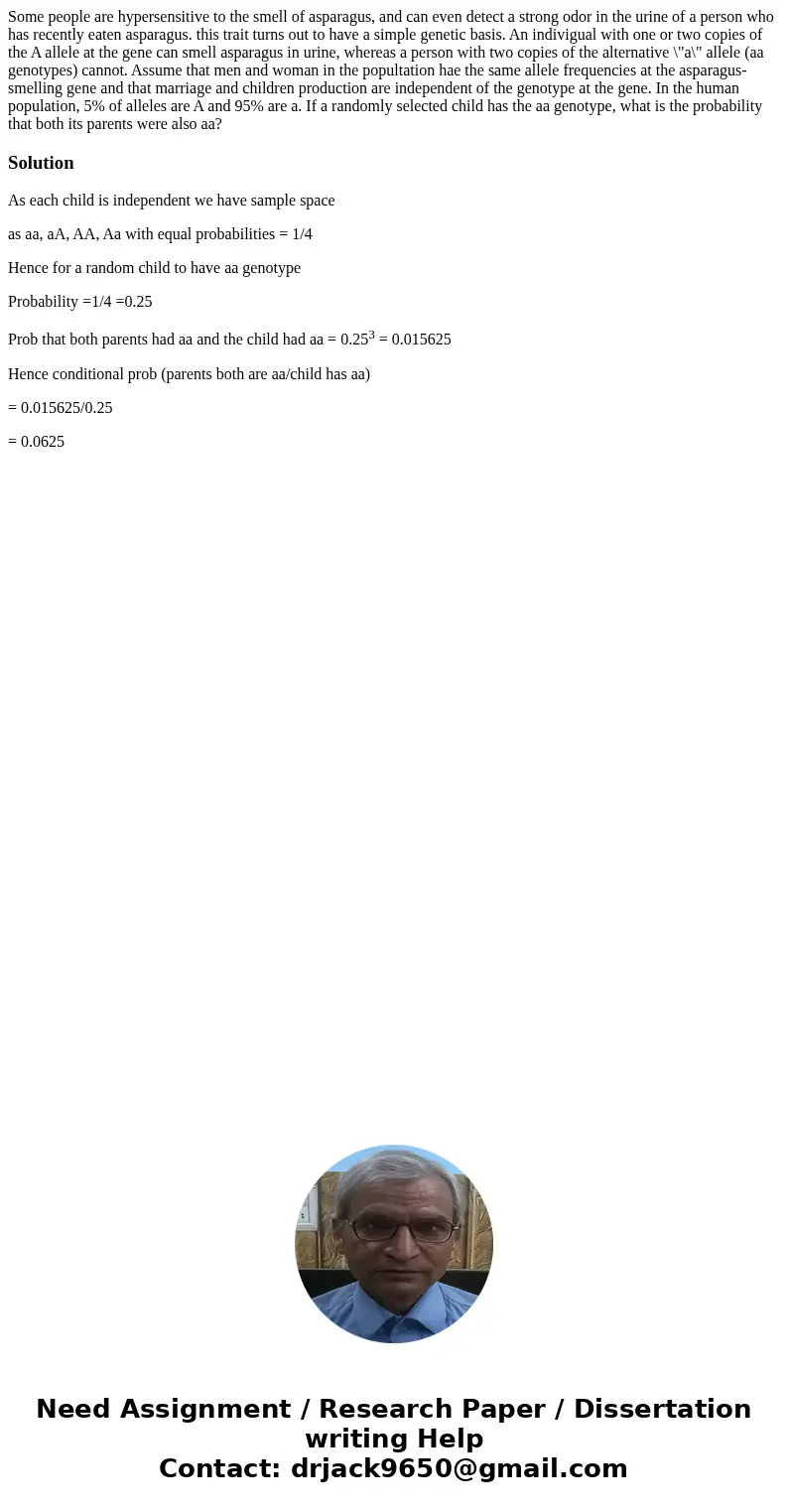Some people are hypersensitive to the smell of asparagus and
Some people are hypersensitive to the smell of asparagus, and can even detect a strong odor in the urine of a person who has recently eaten asparagus. this trait turns out to have a simple genetic basis. An indivigual with one or two copies of the A allele at the gene can smell asparagus in urine, whereas a person with two copies of the alternative \"a\" allele (aa genotypes) cannot. Assume that men and woman in the popultation hae the same allele frequencies at the asparagus-smelling gene and that marriage and children production are independent of the genotype at the gene. In the human population, 5% of alleles are A and 95% are a. If a randomly selected child has the aa genotype, what is the probability that both its parents were also aa?
Solution
As each child is independent we have sample space
as aa, aA, AA, Aa with equal probabilities = 1/4
Hence for a random child to have aa genotype
Probability =1/4 =0.25
Prob that both parents had aa and the child had aa = 0.253 = 0.015625
Hence conditional prob (parents both are aa/child has aa)
= 0.015625/0.25
= 0.0625

 Homework Sourse
Homework Sourse